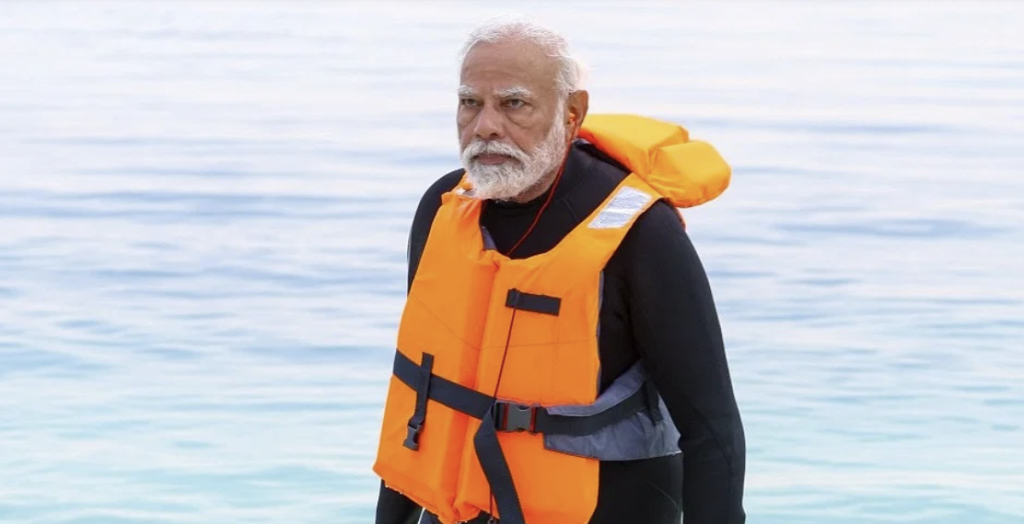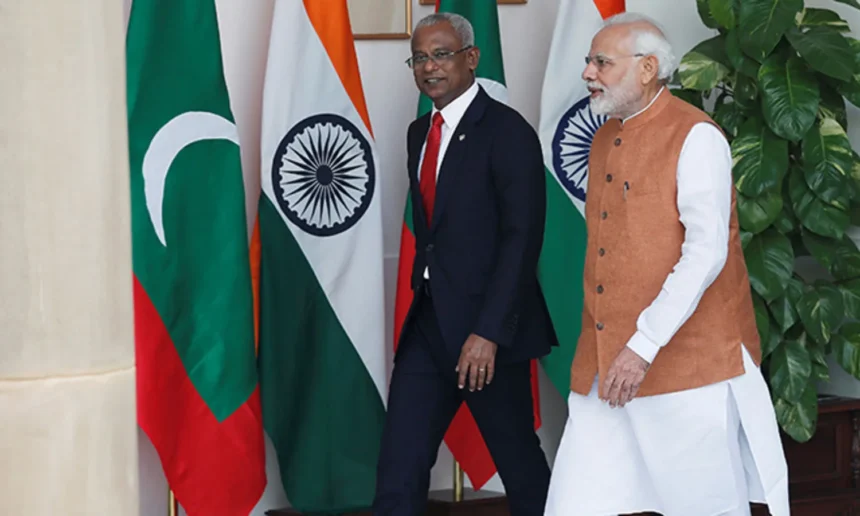In an unforeseen twist of events, the Maldivian government is grappling with the repercussions of suspending three deputy ministers who face public backlash for their derogatory social media posts targeting Indian Prime Minister Narendra Modi. The genesis of the controversy lies in Modi’s recent appeal to boost tourism in Lakshadweep, resulting in a contentious exchange with implications extending far beyond the immediate discourse.
Last Sunday, the Maldivian government suspended three deputy ministers—Malsha Shareef, Mariyam Shiuna, and Abdulla Mahzoom Majid—due to escalating public outrage in India over their offensive remarks directed at Prime Minister Modi. Specifically, Shiuna, in a post that she has posted, she later deleted, has branded Modi a ‘clown’ and ‘someone’s puppet,’ prompting former Maldivian President Mohammad Nasheed to denounce the comments as “appalling.”
The repercussions of the ministers’ comments unfolded rapidly and significantly. Prominent figures who frequently vacation in the Maldives took to social media to condemn the ministers and encouraged their followers to consider visiting Lakshadweep instead. Reports indicate that hundreds of scheduled visits to the Maldives were canceled, delivering a substantial blow to the country’s tourism industry.

Responding to the diplomatic fallout, the Indian High Commission in Male swiftly raised the issue with the Maldivian government, expressing objection to the ministers’ choice of language. In a bid to mitigate the damage, the Maldivian government distanced itself from the derogatory remarks, underscoring that these were personal opinions and did not align with the official stance of the government.
India’s role as a crucial strategic partner for the Maldives is indisputable, rooted in historical ties and India’s pivotal contributions to supporting its maritime neighbors in the Indian Ocean Region during critical junctures. However, recent strains in bilateral relations have surfaced since the election of Mohamed Muizzu last year.
Muizzu’s electoral campaign prominently featured an anti-India stance, pledging to remove around 75 Indian troops from the Maldives. In a departure from previous administrations, Muizzu has exhibited a preference for China and West Asian countries over India in the early days of his tenure. Additionally, he has committed to reviewing over 100 bilateral agreements with India, signaling a recalibration of diplomatic priorities.
The ongoing diplomatic strain is further accentuated by Muizzu’s impending state visit to China, deviating from the convention of selecting India for the first overseas diplomatic tour. Following visits to Turkey and the UAE, Muizzu embarked on a three-day trip to China on Sunday, intensifying concerns about the evolving geopolitical dynamics in the region.
As the fallout from the ministers’ disparaging remarks continues to resonate, the impact on the enduring ties between India and the Maldives remains uncertain. This incident underscores the intricate nature of international relations and underscores the potential consequences of public statements on social media, particularly within the context of regional power dynamics.








